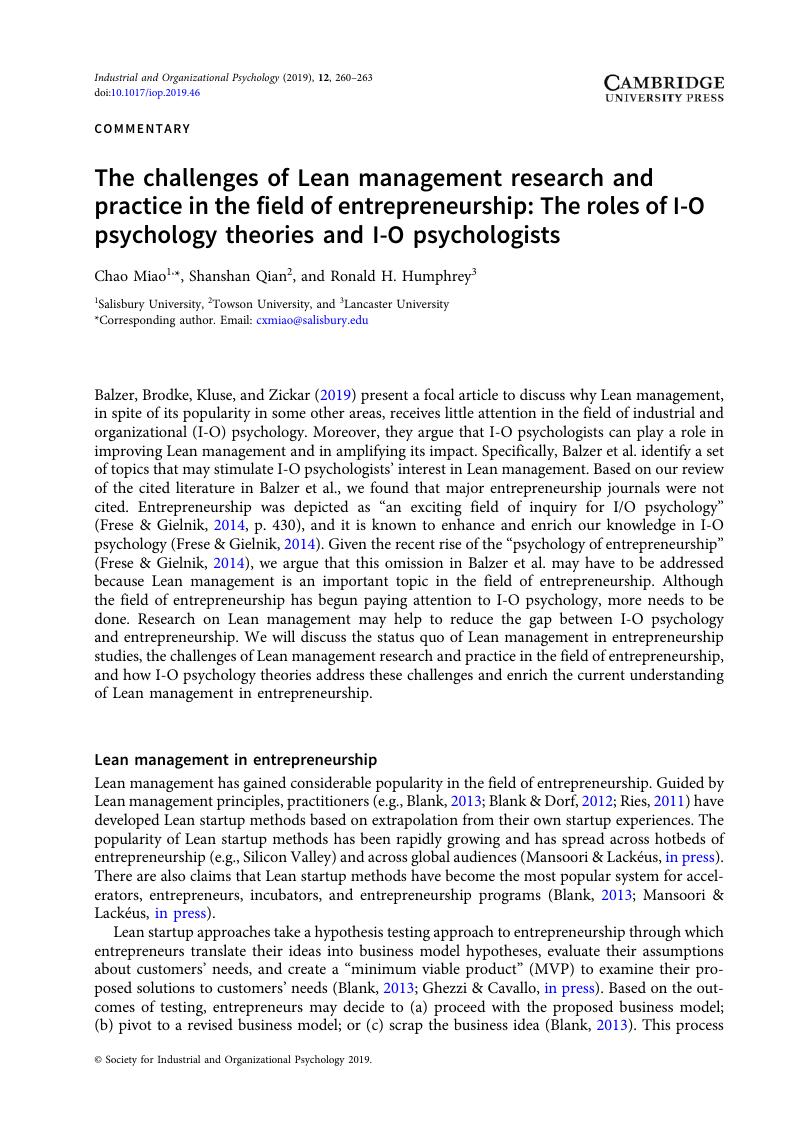Crossref Citations
This article has been cited by the following publications. This list is generated based on data provided by Crossref.
Ceresia, Francesco
and
Mendola, Claudio
2020.
Am I an Entrepreneur? Entrepreneurial Self-Identity as an Antecedent of Entrepreneurial Intention.
Administrative Sciences,
Vol. 10,
Issue. 3,
p.
46.
Qin, Yueqi
Yan, Runyu
and
Sun, Youxia
2020.
The Application of Flipped Classroom Combined With Locus of Control Analysis in Lean Entrepreneurship Education for College Students.
Frontiers in Psychology,
Vol. 11,
Issue. ,
Martínez-González, José Alberto
Kobylinska, Urszula
and
Gutiérrez-Taño, Desiderio
2021.
Exploring Personal and Contextual Variables of the Global Entrepreneurship Monitor through the Rasch Mathematical Model.
Mathematics,
Vol. 9,
Issue. 16,
p.
1838.
Wang, Ruoqi
Zhou, Haijun
and
Wang, Lei
2022.
The Influence of Psychological Capital and Social Capital on the Entrepreneurial Performance of the New Generation of Entrepreneurs.
Frontiers in Psychology,
Vol. 13,
Issue. ,





